Why Distribution Management Software for Your Business?
Distribution companies have some unique needs that set them apart. Many companies need control over manufacturing, inventory, or customer information. Others may place more emphasis on data access and reporting. Although each business may have different priorities, most distribution companies’ needs include:
- A 360-degree view of the customer
- Understand the items customers usually buy
- Get alerts of items customers have stopped buying
- A full view of how customer prefer to place and receive their orders
This type of information allows wholesale, manufacturing, and distribution companies to provide better service to customers, and to achieve this, ERP software needs to provide integration between financials, warehousing, and a full range of customer information to help anticipate customer needs.
Strong Inventory Management:
Inventory is always on the move in a distribution company, yet today’s customer always expects the items they need to be in stock. An inventory management system needs to be able to maintain real-time insight into stock levels, along with the ability to predict accurately for future needs. These will provide the information needed to maintain the right stock levels without excess storage costs.
Insight and Reporting:
One of the big benefits of ERP systems is that they can pull together a variety of different types of information across different applications – from financials to inventory and logistics – and pull it together into a report that can give insight and assist with decision-making in many areas of the business. However, actually providing this insight can be challenging either because the applications being used are not integrated or because the systems do not have the processing speed necessary for the task. An ERP should be integrated across the applications that are crucial to your business, as well as having the processing speed necessary to give real-time access to the data you need when you need it.
Profitability Analysis:
You’re in business to make money, obviously, so your ERP systems should be able to tell you whether or not you’re doing so, not just at the level of the business, but at the level of the items you carry and sell. Profitability analysis allows you to analyse costs of products, cost to acquire customers, cost to carry items that certain customers buy, and so on. This will allow you to make important decisions about which product lines and customers are most profitable, and where you should focus your efforts.
Improve customer satisfaction while minimizing cost
Efficiently manage distribution processes with real-time visibility of available inventory, inventory in transit, reorder quantities, and inventory costs. Minimize inventory and costs; optimize quoting, acceptance, entry, and fulfilment processes.
Reduce order to delivery times
Eliminate delays through automated sales order processing and shipping order generation. Set rules to manage multiple warehouses, returns, credit limits, drop shipments, and more.
Know where your business is
Ensure a steady supply of materials by optimizing and automating your purchasing process
Know your true costs
Determine real-time profitability by warehouse, product line, location, or business unit. Use real-time information to control costs across the entire supply and distribution chain
With increasing pressure on business, IT & distribution teams to deliver and execute faster, an integrated business solution could help.
If you are seeking advice on your distribution business feel free to reach out and we will be glad to assist. We offer free onsite visit and obligation free consultation. If you would like to contact us, click HERE.
